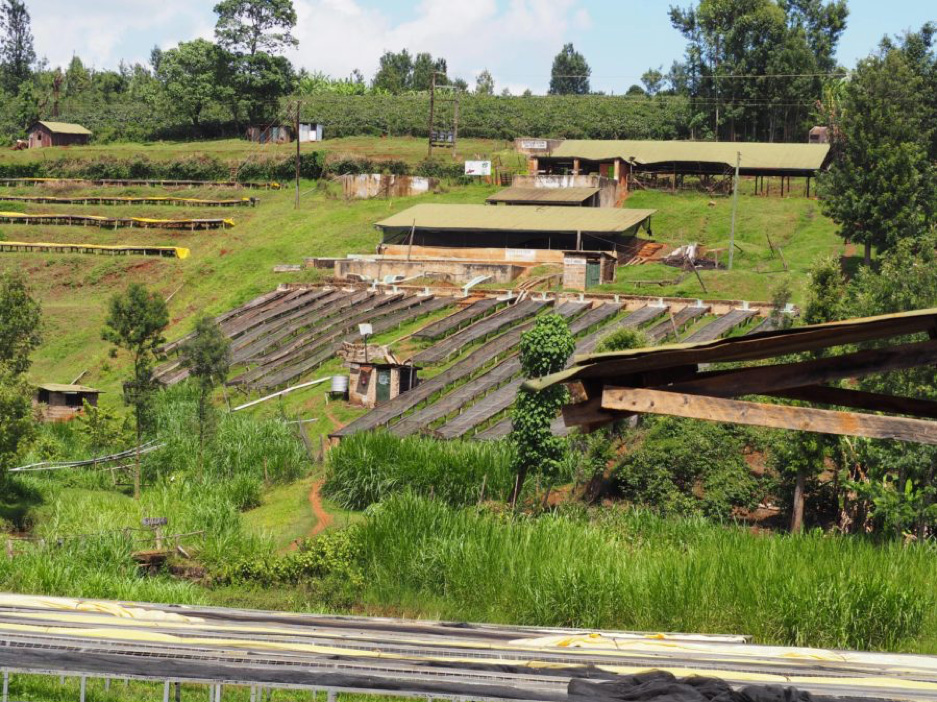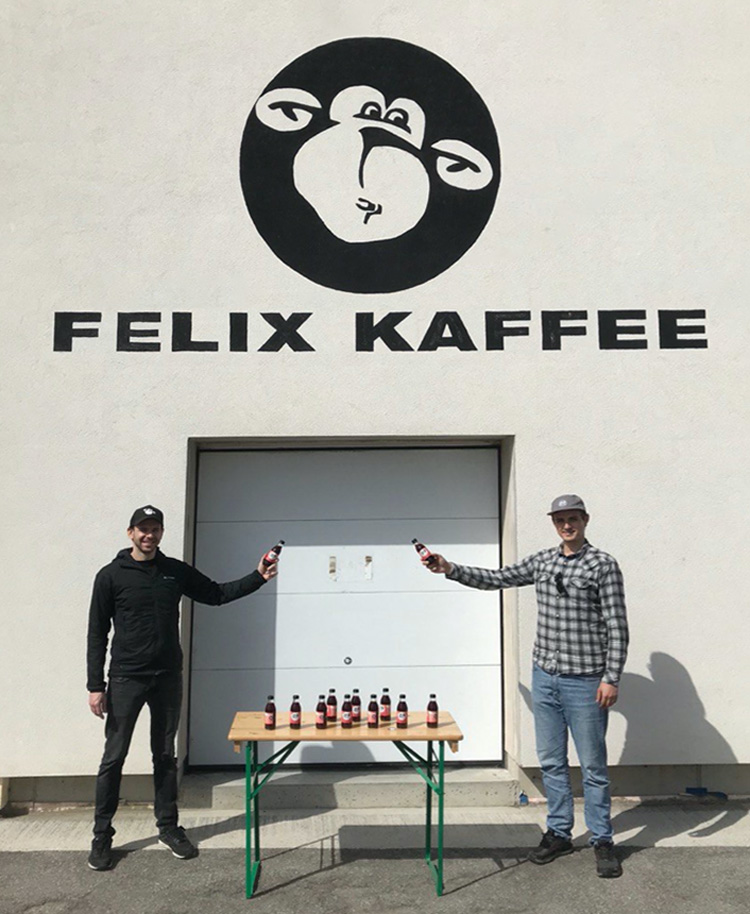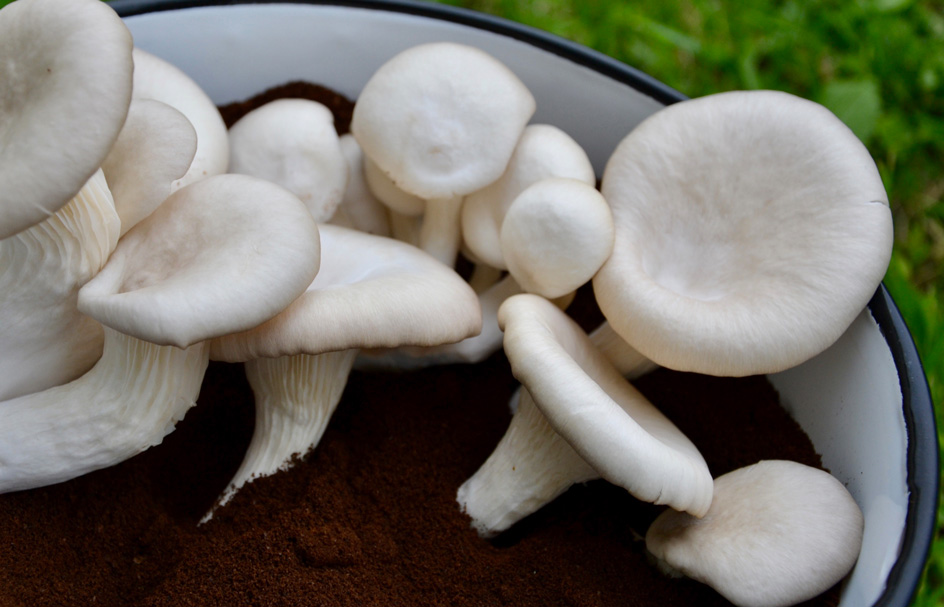25 Grams of Felix’s Kenia Buy Now
- Producer: Gakuyu-ini
- Altitude: 1700–1900
- Coffee variety: SL28 & SL34
- Process: washed
- Drying: African Beds
- Profile: juicy berries, velvety & balanced, sweet vanilla finish
- Roasted by: Felix Kaffee (current Austrian Roasting Champion)
From bean to bottle
And here comes another superstar cold brew, handcrafted by 25 GRAMS. This Kenyan delight is roasted by no other than the current Austrian roasting champion, Felix Teiretzbacher owner of Felix Kaffee. Since 25 GRAMS aims to be as transparent as possible, this bean2bottle story dives right into the value chain—from the coffee’s origin to the cold brew bottle you proudly hold in your hands. We assume you are also curious to find out how the many different steps can impact the aroma and taste of the final product. So, sit down, relax, have a glass of cold brew and let us take you on our bean to bottle journey.
KENYA – THE ULTIMATE ORIGIN
The coffee journey starts, of course, in the coffee origin, i.e. the place where coffee trees are grown and where the coffee develops its unique characteristics. “Kenyan coffees are renowned for their bright, complex berry/fruit qualities as well as their sweetness and intense acidity”, James Hofmann notes in his World Atlas of Coffee. This general description fully applies to our batch #9. Gakuyu-ini is located in Kirinyaga County in the central highlands of Kenya, a region that benefits from the rich volcanic soils around Mount Kenya. The beautiful, fertile and forested land hosts thousands of smallholder subsistence farmers who grow coffee as a cash crops along with bananas, mangos and avocados at 1700–1900 meters above sea level.

COFFEE BEANS AND PROCESSING
SL28 and SL34 are the two coffee varieties used in this cold brew. Both stand for extraordinary cup quality and are held in high regard by the specialty coffee scene. Around the Gakuyu-ini station, cherry picking takes place between October and January. After picking, the cherries get pulped using disc pulpers in the wet mill and then channeled into tanks for a dry fermentation process of 25 hours before sitting in soak tanks with cold water for another 24 hours. After that, the coffee is laid out on raised beds where it is left to dry under the sun for approx. two weeks. This is a rather typical process in Kenya, where the cold water fermentation, in particular, gives the coffee its special berry acidity and sweetness. The last step at the milling station involves removing the parchment as well as sorting according to screen size. The coffee of batch #9 falls under the AB grading category, meaning the screen size is between 16 and 15 (6. 8 mm to 6.2 mm).
IMPORTING
Falcon Coffees, a renowned specialty coffee trader, puts a lot of emphasis on ethical sourcing. By focusing on quality and sustainability, the company builds collaborative supply chains with the aim of generating mutual benefits and long-lasting social impacts. Please check the video below to see how Falcon addresses the Sustainable Development Goals (SDGs), and especially those related to sustainable agriculture.
The vast majority of the coffee bought and sold in Kenya goes through a national auction system. Marketing agents put their bids on cooperative and estate coffees, the main buyers of which are often large multinationals, who then reoffer the lots to smaller importers. Falcon avoids these middlemen by buying directly from the auction with the help of a local company. Before the bidding, they had already cupped and identified the most promising lots. Buying directly on-site and without the middlemen helps to build traceability and keeps the prices fair. Since Falcon’s business approach aligns with 25 Grams’ philosophy, you can rest assured that the coffee used in our Cold Brew went through exactly the same process.
THE CHAMPION’S ROAST
We believe that the best coffees deserve to be roasted only by the best roasters. And Felix Teiretzbacher, the owner and head roaster of Felix Kaffee (www.felixkaffee.at), a microroastery in St. Pölten, Austria, certainly qualifies for that. In fact, he is the Austrian Coffee Roasting Champion! Although the idea of collaboration has been around for a while, we are so happy that we finally made it happen.

While Felix’s roast for batch #9 is a rather fast and light one, it is by no means underdeveloped. Quite the contrary: Felix really managed to accentuate the beautiful terroir and all of its complexity. The delicate roast makes the coffee superbly balanced and wonderfully sweet. But to be fair, we didn’t expect anything less from this true champion. Thank you Felix!
REUSING THE COFFEE GROUNDS
As always, after the cold-brewing process, we donate the used coffee grounds to our partner Pilzkiste (www.pilzkiste.at), a start-up in Graz where Nina, Mercedes and Jasmin decided to end the needless waste of coffee grounds. So, they developed this fantastic urban mushroom farm and grow oyster mushrooms straight out of the coffee grounds. And yeah, besides being a truly sustainable initiative, the mushrooms are just badass. Go, check’em out!


